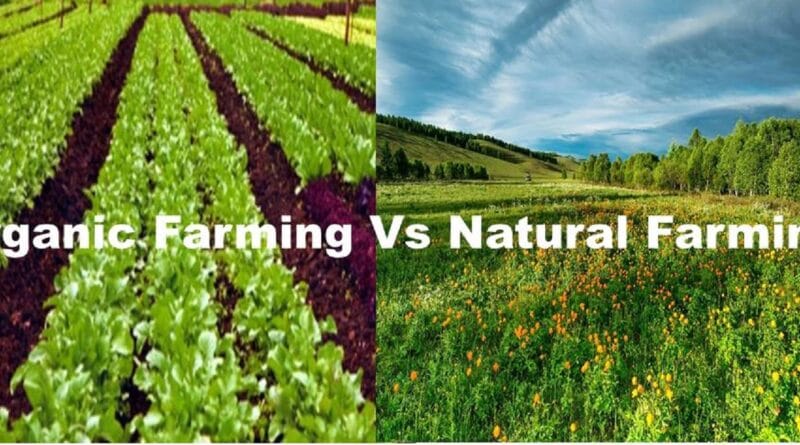Organic vs. Natural Farming: A Comparative Analysis
Organic vs. Natural Farming: Focused on sustainable agriculture practices;
Organic farming and natural farming have recently focused on sustainable agriculture practices as their primary area of interest. These practices lead to better soil health while cutting dependence on synthetic chemicals, and they promote biodiversity that benefits both the environment and human health. Natural farming principles and approaches stand apart from organic farming in significant ways.
Understanding Organic Farming
- Organic farming is a well-defined, structured, and regulated agricultural production system.
- Organic farming enhances long-term soil productivity through minimum mechanical processing. Organic farming increases the soil biological activity, which increases the organic matter of the soil.
- Organic farming controls disease, pests, and weeds through crop rotation, resistant varieties, natural enemies, organic manures, diversity, and minimum chemical and thermal treatment.
- The National Programme for Organic Production (NPOP) is the agency that approves organic certification in India. Some of its functions include accrediting certification bodies, establishing national standards for organic products, and facilitating the certification process.
- The “India Organic” logo is used as a quality mark. These standards prohibit the use of sewage sludge, synthetic fertilizers, pesticides, and genetically modified organisms (GMOs).
- The core principle of organic farming is sustainable and holistic farming that appreciates the concept of the world, humans, plants, animals, and soil
Exploring Natural Farming:
- Natural farming is based on the principle of Masanobu Fukuoka (Do Nothing Farming), which means minimum intervention and working with nature.
- Natural farming is less formalized as compared to organic farming.
- It emphasizes total restriction on chemical fertilizers, tillage, weedicides, and pesticide use in farming.
- Natural farming minimizes human interventions and relies on the inherent capability of the earth to nurture the crops.
One key aspect of natural farming is preserving natural fauna and flora. This method maintains diversity in crop production, restores soil health, and efficiently uses land and natural resources. It also promotes naturally beneficial insects, animals, and soil microbes.
Natural farming eschews chemical fertilizers and pesticides, opting instead for homemade solutions like Jeevamrit and Beejaamrit, etc.
Differences between Natural and Organic Farming:
| Criteria | Natural Farming | Organic Farming |
| Regulation and Certification | It requires no certification process or standards | It requires specific standards and certification processes |
| Soil Management | No disturbance to the soil. It allows natural processes to maintain soil health. | It uses planned field operations like crop rotations and organic fertilizers. |
| Pest and Weed Control | It relies on ecological balance and promotes biodiversity to control the weeds and pests naturally | Organic growers may use approved organic pesticides and herbicides to suppress weeds and pests. |
| Values and Practice | It focuses more on minimum disturbance and allowing natural processes to maintain soil health. | It is based on scientific guidelines and practices |
Benefits and Challenges of Organic Vs Natural Farming
| Criteria | Organic Farming | Natural Farming |
| Challenges |
|
|
| Benefits |
|
Read further:
Organic Crop Production Certification Process in India
How to Make Jeevamrit: A Natural Remedy for Sustainable Farming



